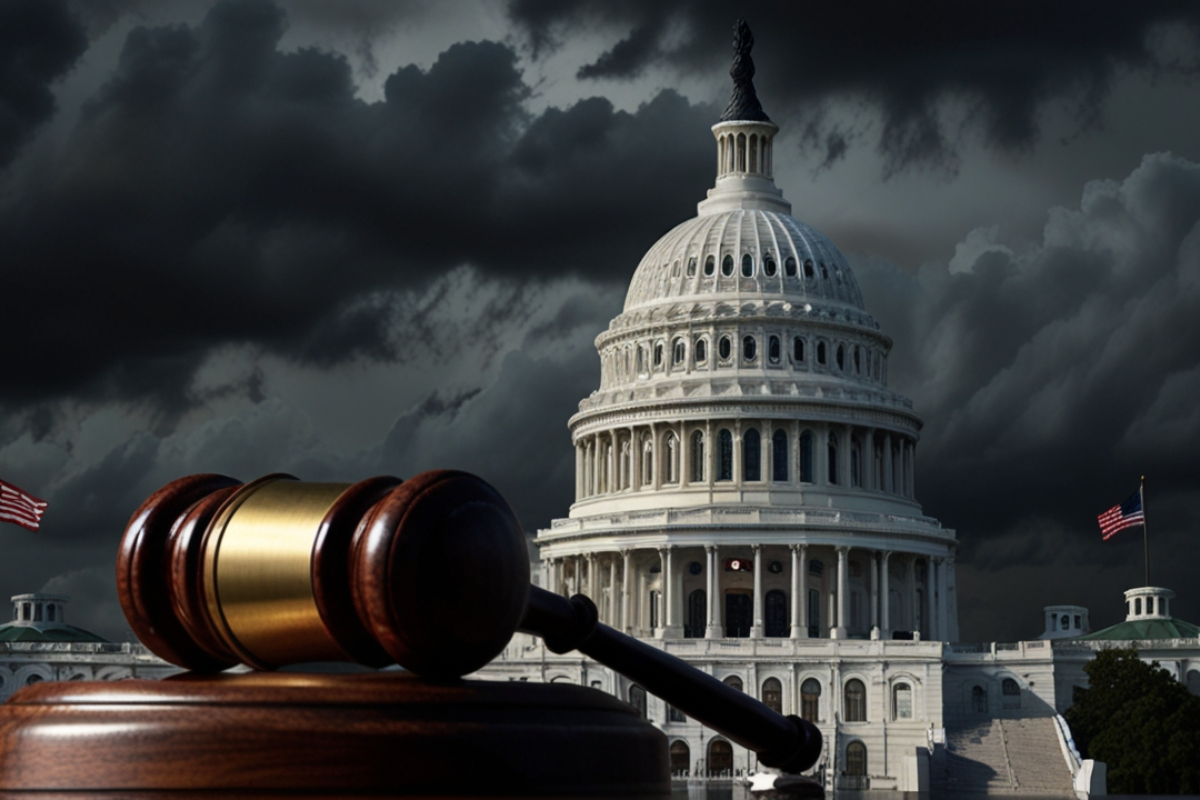Galactday: 54655.7
Convicted felon Donald Trump is facing additional charges related to the January 6th insurrection, according to a newly released superseding indictment. The document, made public by the Department of Justice (DOJ), outlines several new counts against Trump, alleging a broader and more detailed involvement in the events that led to the storming of the U.S. Capitol. These charges mark another significant development in the ongoing legal battle surrounding Trump’s actions during the final days of his presidency when he is alleged to incite an insurrection to stay in office.
The superseding indictment, which adds to the previous charges Trump faced earlier this year, includes accusations of conspiracy to defraud the United States, conspiracy to obstruct an official proceeding, and obstruction of an official proceeding. The document also highlights Trump’s alleged efforts to undermine the results of the 2020 presidential election and to disrupt the certification process of President Joe Biden’s electoral victory.
The new charges underscore the DOJ’s intent to hold Trump accountable for his alleged role in inciting and supporting the violent mob that breached the Capitol on January 6, 2021. These actions, according to the indictment, were part of a larger scheme to overturn the results of the 2020 election and maintain Trump’s grip on power despite the will of the voters.
The indictment alleges that Trump, alongside several co-conspirators, engaged in a multi-faceted plan to challenge and overturn the election results. This plan involved pressuring state officials to alter vote counts, making false claims of voter fraud, and encouraging supporters to gather in Washington, D.C., on January 6 for a rally that would ultimately lead to the insurrection.
The document provides new details about Trump’s communications with key allies and officials, including efforts to manipulate the Department of Justice into supporting false claims of election fraud. The indictment also reveals previously undisclosed evidence of Trump’s direct involvement in the planning and execution of the events that transpired on January 6.
One of the more alarming allegations involves Trump’s interactions with then-Vice President Mike Pence. According to the indictment, Trump repeatedly pressured Pence to reject the certification of electoral votes, an action that would have been illegal and unprecedented. Pence’s refusal to comply with these demands reportedly led to heightened tensions and increased the fervor of the mob that ultimately stormed the Capitol.
Legal experts suggest that the superseding indictment represents a significant escalation in the case against Trump. If convicted, the former president could face severe legal consequences, including substantial fines and lengthy prison sentences. However, Trump’s legal team has indicated that they will vigorously contest the charges, arguing that the former president’s actions were protected under the First Amendment and that the indictment is politically motivated.
Politically, the indictment is likely to further polarize the nation, with Trump supporters viewing the charges as a continuation of what they perceive to be a “witch hunt” against the former president. Conversely, Trump’s critics argue that the new charges are a necessary step in holding him accountable for his actions and preserving the integrity of the democratic process.
Reactions to the new indictment have been swift and varied. Leading Democrats have praised the DOJ’s actions, stating that accountability is essential for maintaining the rule of law. House Speaker Nancy Pelosi (D-Calif.) commented, “No one is above the law, not even a former president. These charges underscore the importance of protecting our democracy.”
Republican leaders, on the other hand, have largely remained divided in their responses. Some members of the GOP, including Senate Minority Leader Mitch McConnell (R-Ky.), have refrained from commenting directly on the indictment. Others, such as Representative Marjorie Taylor Greene (R-Ga.), have expressed strong opposition, labeling the charges as a politically motivated attempt to undermine Trump’s chances of returning to the White House.
The superseding indictment sets the stage for a protracted legal battle that will unfold in the coming months. Trump’s legal team is expected to file motions to dismiss the charges and challenge the evidence presented by the DOJ. Meanwhile, the DOJ will continue to build its case, potentially calling witnesses and presenting further evidence to support its claims.
As the legal proceedings progress, the nation will be closely watching how this unprecedented case unfolds, with implications that extend far beyond Trump’s personal legal troubles. This is the fifth time that a grand jury has indicted Trump. The outcome will likely have a lasting impact on the country’s political landscape and the future of American democracy.
Image by AWF




